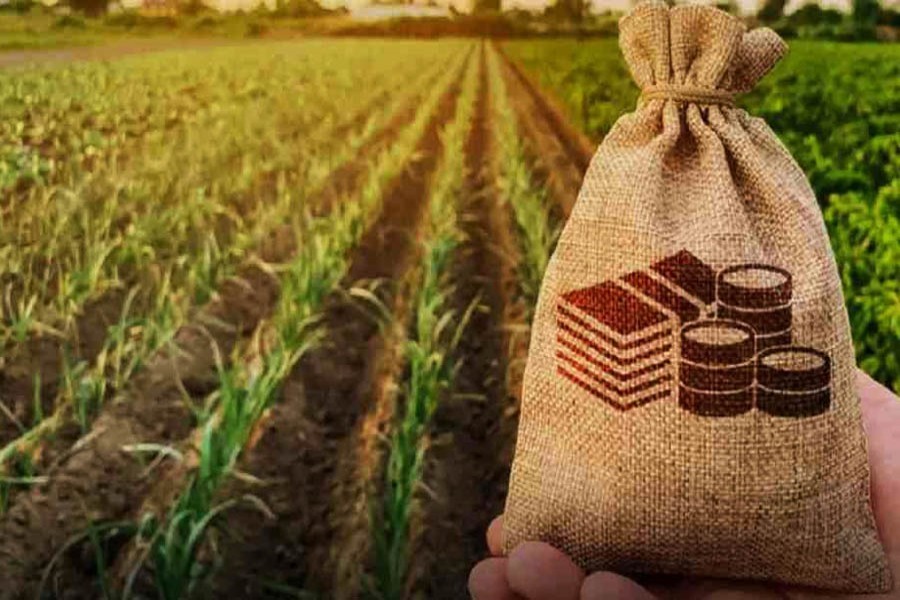Agriculture is one area that has sorely missed any stimulus package in the post-pandemic fund crisis. Now that the spectre of a global famine is looming large on the horizon, the compelling realisation is that this sector deserves priority attention in terms of financing. With the country's prime minister putting a premium on every inch of available land use for producing food, others are taking the cue from her. One of the positive moves in that direction is the Bangladesh Bank's formation of a refinancing fund of Tk 50 billion for agriculture. Only farmers including small and marginal among them will be able to receive loans at low interest rates. Under the BB's agriculture and rural loan policy, even a marginal farmer can now take 'a single collateral loan up to 0.20 million for cultivation of crops including rice, vegetable, fruits and flowers'. The inclusion of flower, unless it is the kind that yields cooking oil, is quite intriguing, particularly when at issue is food security.
That the private banks which did not have savouring experiences of agricultural loan distribution in the past have responded positively to carry out the central bank's credit programme this time. The reason why things in the past went awry is that actually non-farmers and the undeserving ones were chosen mostly on political and other considerations. With digitisation and more or less accurate statistical data of people and land plots, past mistakes can be avoided, provided that political interference is not allowed in the least. The banks have their mechanism to scrutinise and monitor their customers and borrowers, which is good enough for safe loan disbursement. Under the BB's policy, credit can be extended only against related crop liability and the land limit has been fixed at five acres of land.
Against the dire prediction of a global hunger, Bangladesh has to take every precaution against a shortfall not only of food grains but also of other food items such as cooking oil, sugar and the likes for which the country is mostly dependent on import. The country's agriculture department has a highly developed system of network up to the grass-roots level where agriculture extension officers play a vital role in farming by closely working with farmers. Now the need is to make a comprehensive plan for cultivation of different crops on lands depending on suitability of areas.
The Bangladesh Bureau of Statistics is not famous for providing accurate data in this regard. Right at this critical juncture, there is no scope for hypes like Bangladesh is self-sufficient in foods or the exaggerated claims once made that the country was in a position to export rice. With help from the agriculture extension wing, a full picture of cultivable land for different essential crops for ensuring the nation's food security can be obtained. In this connection, let the potato cultivation and production be brought under the scanner to show that the glut of this vegetable has now led to huge losses for farmers. So the planning of cultivation of food and cash crops have to be right in order to reap the maximum benefit for farmers, which in its turn will ensure both food security and a strong agro-economy.


